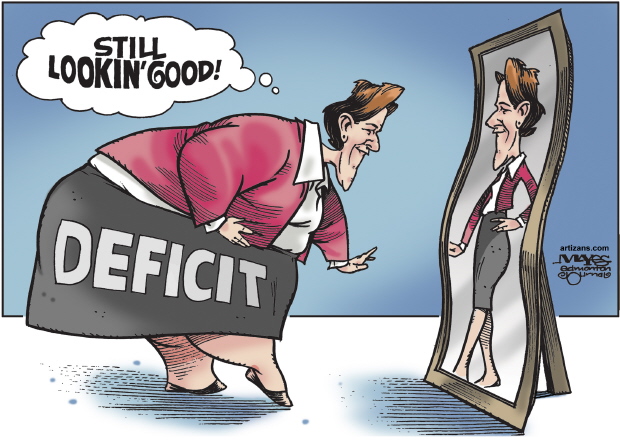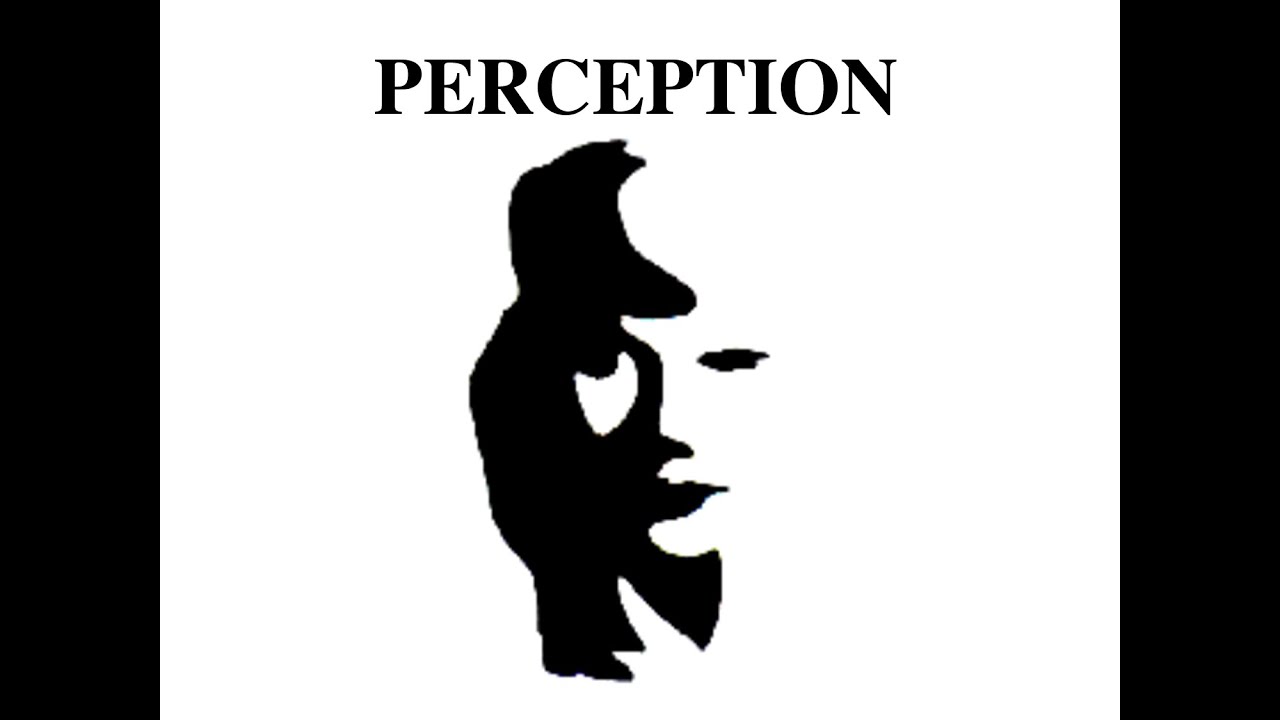Table of Contents
Perception vs. Reality in decision-making should be on the mind of any serious thinker, manager, or leader as the most important aspect of decision-making.
The reason is simple. If your decision-making is based on wrongful perceptions you’ll drift away from truth and effectiveness and make wrong decisions.
Believing Is seeing – Perception Affects the Vision
People perceive what they perceive and that is what they see whether it’s real or not. It’s that dramatic.
More importantly, because people then think about things in a certain way they actually start to see things according to how they think.
When a person thinks about things in a certain way, for long enough they often move to the next level which is Believing.
Believing is connected to a person’s emotions, which is an extremely powerful human tool.
As you well know, most people protect their belief system vigilantly, even willing to die for their beliefs, which tells you that it is at the very human core.
Again, there are people who are willing to die over what they believe even if, and here it is, even if it’s based on falsehood.
I have researched the belief system in humans years ago and to my amazement found that 95% of beliefs have never been checked.
They were hand-me-downs beliefs unsubstantiated or fact-checked. In other words, they went straight into people’s emotions bi-passing the thinking and the logic.
From Believing people then move to Seeing, which is a physical manifestation inside their mind of what they believe in. It can be that powerful.
In the same token, it works the other way where if something is not in human consciousness & perception, they may not see it even if it’s in front of them.
Ships Not Seen
The term “ships not seen”, in the context of scientific discovery, is a reference to the famous Christopher Columbus story of how, upon arrival to the new world, the native Indians, supposedly, could “not see the ships” in the harbor, even though they were in plain sight, supposedly, because they did not have the proper mental slots or receptors to process or accept such foreign or rather never before seen views. (source)
And that’s the basis of this writing perception vs. reality in decision making.
What Is It That we are Dealing With?
Is your perception based on facts or is it a result of outside influence, wrongful psychologies, brainwashing, the short-sightedness of quick gains, which swayed your mind in a particular way regardless of the truth?
The perception of the masses is mostly fashioned by what the media, political figures, sales organizations, governments, commercials, and most means of communication.
It’s the sheer noise factor and massive brain impression blitz that actually prevent people from being facts educated.
These mediums all fight for space in the human mind, to persuade people to perceive in ways that profit them personally and have very little to do with the truth or the well being of the masses.
Understanding the dynamic of perceptions vs. reality can have a huge impact on decision making and how we define what is a win, and what is a success for us.
If we have the perception we are winning we will win. If we have the perception we are succeeding we will succeed. It is that powerful and can work two ways, positive and negative.
When it comes to the decision-making process, very often, it’s perceptions, not facts that have a greater influence on what is being decided.
The true strength of a thinker is to align with the truth, the facts, and reality with their perception. By doing so one is backed up by the truth which is at the end of the day is the most powerful force there is.
So many prefer to live lie by not willing to look at what disagrees with them but all they do is delay the inevitable which will not pan out well for them, especially if they are in high powered leadership positions.
How will It affect You?

Understanding the dynamic of perceptions vs. reality in decision-making can have a huge impact on the level of performance in professional life, in leadership, and, more importantly, in your success as a human being, which is a 24/7 business in which you are the CEO.
If we have the perception we are winning we will win. If we have the perception we are succeeding we will succeed.
If we have the perception that someone hates us we will deal with them in our mind as a hater, even if they are not. It is that powerful and can work two ways, positive and negative.
Here is a story that will illustrate it very well It is called Oreily’s Horse.
There was once a farmer who lived on a remote farm with his wife. The wife was pregnant. Then, labor pains began. The wife asked her husband to walk over to their nearest neighbor, Mr. Oreily, and ask him for his horse and cart so they can go to the nearest health facility for the birth of their baby.
As the husband walked the distance to Oreily’s home he kept thinking about the conflict he had with Mr. Oreily 30 years ago and how his neighbor must still hate him and won’t want to lend him his car.
On and on he walked, all along thinking how Mr. Oreily hates him.
He arrived and knocked on Mr. Oreily’s door. The door swang open. Mr. Oreily stood there smiling at his neighbor clearly delighted to see him after all this time.
What happened next is the point of the tale where perception, as false as it may be, is the deciding factor of what will happen…The neighbor looked at the smiling Mr. Oreily and shouted ” you can shove your cart and horse I don’t need them” turned around and walked away.
When it comes to Perception vs. reality in decision-making perception wins!
The true strength of a thinker is to align the truth, the facts, the reality with their perception. By doing so one is backed up by the truth which is at the end the most powerful force there is.
So many prefer to lie but all they do is delay the inevitable which will not pan out well for them especially if they are in high powered leadership positions.
Deeper Understanding Of Perception Vs. Reality In Decision-Making

Here is a fact: How we perceive things is very often tainted and does not reflect reality.
You may have been in a situation where you asked a question and got a response that had nothing to do with your question.
Why? Most likely because the person who heard your question had a “noise” in their head that distorted what you actually said.
It happens all the time. People often perceive their own version of what they hear according to what they thought previously. In other words, they keep living their past in their mind. Not the “now”!
This is important to understand and take to account, as our perception may hear “a different song then the one being played”.
This is often determined by our psychology, which of course, was formed in the past and created a “silent bias” in us, without our conscious consent.
For example, if someone that we perceive to be stupid tells us something smart we will tend to dismiss it, but if we hear the same thing from someone we perceive to be smart we will take it in.
So what we accept, deny, and decide often depends on our perception, not on the truth!
In other words…in the consideration of perception vs. reality, the perception will win every time, almost, unless you are in a personal development quest where you have decided that you are not threatened by the truth.
As one famous general in the IDF said concerning fear and truth: “We looked at death in the eye and it lowered its gaze”.
Other Examples of The Power of Perceptions

It is a well-known fact that when we buy a car we start noticing the cars of the same make and model everywhere. So it can be said that we see more of what we perceive.
Another example is when in childhood we perceive things to be big and then upon returning to the same place as adults we realize that it is a lot smaller than it was held in our mind.
More examples…if we perceive weight loss to be a difficult or easy thing to do, our actual ability to lose weight will be influenced by our perception.
If we perceive coffee to be an absolute must, we’ll be heavily affected mentally and emotionally by the absence & presence of coffee.
If we perceive something as hard to do then it will be. If we perceive ourselves to be a morning person then we will be, or vice-versa.
A morning is a morning and night is night but our perception of us in the morning or in the night will influence our feeling and abilities, self-discipline, tiredness, etc.
Another notable example is that if a person is ambitious about something (which was formed by a perception) their perception will only allow them to see what they want and often they will entirely miss the consequences of their ambitions or the Big Picture of whatever it is they’re ambitious about.
My own mother had to fight and scramble for food when she was a little girl and ever since she stores and hoards food because of the perception she has of lack and the fear of lack.
How We Form Our Decisions
From just these few examples it is easy to see that perceptions cause beliefs, create comfort zones, form blind spots, influence mindsets, create conditions, affect abilities, lead to decisions, inspire great acts, and form attitudes.
Perceptions lead to decisions, which lead to actions, which lead to defining what is a win and to what is a success.
That is why it is extremely important to make sure that in the battle that is raging in us of the perceptions vs. reality we seek the facts, as best we can, that day, that hour, that moment, knowing we are in fast-changing times.
Otherwise, we live in a fantasy of our own making, which sadly, most people do.
Finally, here is a saying that reflects the most important perception there is, which is of who we are:
“How many times you thought you couldn’t do something and you proved yourself right?”
Perception vs. Reality in the Most Important Decision-Making You Make – Who You Are

It all begins there. It is your perception of who you are.
Everything else pales compared to that decision-making because your life quality, success, wins, losses, all, depend on it.
Here is a fact for you to consider…Did you know that most people have the wrong perception of themselves?
Did you also know that the way they perceive themselves will attract more of the same to their lives?
What a person perceives is what they can see, which will be determined by the extent of their personal development, their emotional intelligence, and, their ability to research and think for themselves or not.
The examples are many.
The Perceptions of Money
One person will perceive their loss of money or property to be the end of the world and label themselves as stupid or as a failure.
While another will perceive it as an opportunity to do better next time and use this loss as a springboard for a new opportunity and positive change.
One person may have the perception that $10,000 dollars in the bank is a lot of money and someone else’s perception of a lot of money will be having $100,000,000 dollars.
There’s a mind-boggling story of a billionaire who had a net worth of 5 billion Euros. He lost 2 billion in the economic downturn of 2008. He had 3 billion left, or to put it, in other words, Three Thousand Million Euros!!! Naturally, this would be an amazing wealth and success for most people who perceive having a lot of money as a success.
Not for him.
Would you believe he committed suicide as a result of his loss! His perception of himself as a failure was so devastating that it wasn’t worth living anymore.
Here is a ‘personal development plan template’ question for you:
What perceptions do you have that are based in fiction, or brainwashing in childhood that control your life and your decisions today, and that you never challenged the merit of?
Amazing Statistics

In this duo of perception vs. reality in decision-making statistics tell an important tale, because statistics are neutral, they are data, they don’t lie.
What you make of them, however, will be your perception, which will either hijack reality or get reshaped by it.
In a recent experiment, people were asked which they perceive to be the most deadly animals, in which the common answers were: hippopotamus, sharks, lions, tigers, spiders, scorpions.
The truth of the matter was dramatically different:
- 1st was mosquitoes who account for 750,000 human deaths per year!
- 2nd was the human being, inflicting death on each other, accounting for half a million deaths per year.
- 3rd were snakes, accounting for 50,000 deaths per year,
- 4th deadliest, would you believe, “a man’s best friend”! Yes, dogs account for 25,000 deaths per year.
There you go, Perception Vs. Reality. Less than 1% of the total deaths caused by animals in the world are attributed to the “dangerous” animals listed above!
Perception & Belief Anatomy

Further understanding of “Believing Is Seeing” As was explained many perceptions are based on “hand me down” ideas that are seldom checked.
The perceptions of a person and their belief system “travel” together and the same principle applies, most beliefs are a “hand me down” beliefs, seldom checked, and usually were created somewhere in the past.
Belief and perception see eye-to-eye, feed each other, shape each other, invigorate each other, energize each other, and, yes, confirm each other.
The only problem is that they can often be part of a closed circuit that plays out in the mind of a person and is detached from reality.
This then further escalates to a “pseudo-reality”, which is, often, far removed from what is going on. This is what happens with most people, and it simply says that most people live in a world of their own!
We live in a world with colliding perceptions and belief systems that are biased interpretations of reality. This is the basis for most conflicts and, unfortunately, for most decision-making.
Millions of people have died because they had different perceptions about an issue and in most cases, their perception was based on false belief (fiction), in not knowing, in assuming, in wrongful expectations, but not in reality.
A “Big Ego”, as is “A victim Psychology”, are often formed by a biased perception of being insecure and threatened “I am insecure therefore I shall attack or escape”. (fight or flight)
How Choice and Perception Affect Leadership

Perception should be a matter of knowledge, awareness, and consequent choice.
Being aware of the facts, being careful that their perception is not tainted by past views, and choosing to see things as they are, without bias is a responsibility of leadership.
The ability to choose and decide what perception to have reflects a level of life leadership and decision-making as part of a personal leadership development plan.
Thinking according to the facts, which is how to connect to The Power Of Now, while not allowing past views and judgment to shred the now with tainted and warped translations, is the key!
The perception that one has a choice in decision-making about everything is critical.
That ability depends on learning to think for oneself, which is not so easy to do, as most of what we think about, and how we think, has been influenced by others or by events in our past.
How Do You Perceive You?

In the growing understanding of perception vs. reality in decision-making we must, if we are serious, look at ourselves first.
That’s a tricky one to get a grip on, as we have a perception of who we think we are but not necessarily of who we are.
There is a big difference!
We live in our body but we never see ourselves from outside in! Everyone else sees us and we must take that point into account if we are to have a true perception of who we are.
I am sure you have had a video of you and seen yourself speaking or saw how you looked and were shocked because your perception of yourself looking at the rest of the world from inside you was different to see you from outside.
Therefore, To have a true perception of oneself one needs External Perception.
That includes daring to ask a lot of questions from many people.
Asking vulnerability questions such as
- “What am I like?”
- “How do you see me”
- “What are my assets”
- “What are my unfortunate aspects”
- “How would you suggest for me to change”
and more vulnerability questions…and to listen carefully.
Can you imagine how the world would be if leaders would actually have that kind of strength and security to be vulnerable and ask such feedback questions?… One can dream, but in my case, I work to train leaders to do just that.
To perceive oneself accurately, one has to have an unbiased view of their strengths and weaknesses. Their red lines below which they will not go, their belief system, value system, points of tolerance and intolerance, comfort zones, likes, dislikes, and more.
If you want to fall on the right side in the power struggle of perception vs. reality in decision-making where your own life and professional career are concerned you need to have that COURAGE.
Finally
Remember, in the struggle of perception vs. reality in decision-making, the perception of who you are as a human being, professional, leader, has already been determined and you are living in the temple of the past… unless, yes, unless you decide to build the temple of the future by aligning your perceptions with fact-based reality.
It’s your perception that will determine your actions so make sure that your perceptions are carefully checked and are corroborated by facts, otherwise, your decision-making process can veer way off track, likened to a building built on a quagmire.
Align your belief system with a credible, fact-based reality and be suspicious about your perceptions until you recheck them, over and over again.
Otherwise, your past perception will hijack reality instead of being aligned to reality.
As a Life Coach for the Pros, I have helped many professionals sort out the power struggle of perception vs. reality in decision-making, which helped their decision-making skills and leadership career immensely.
More importantly, it guarantees a level of leadership performance that people can trust and follow as there is nothing more inspiring to the workforce than a cautious leader that bases their professional decision-making on credible facts that are current.
This is one of the most important leadership skills especially in changing times when everything is on the move and changing by the day.
How can a leader lead others if they can’t be a self leader first, and know-how to sift between facts & fiction?
Eli Harari
The Life Coach for Professionals™


Pingback: Thinking Creatively In Times Of Crisis - ASK
Pingback: Follow Your Gut - Discover What Is The Decision Making Process About
Pingback: What Does Perception is Reality Mean: A Clear Explanation - brilliantio